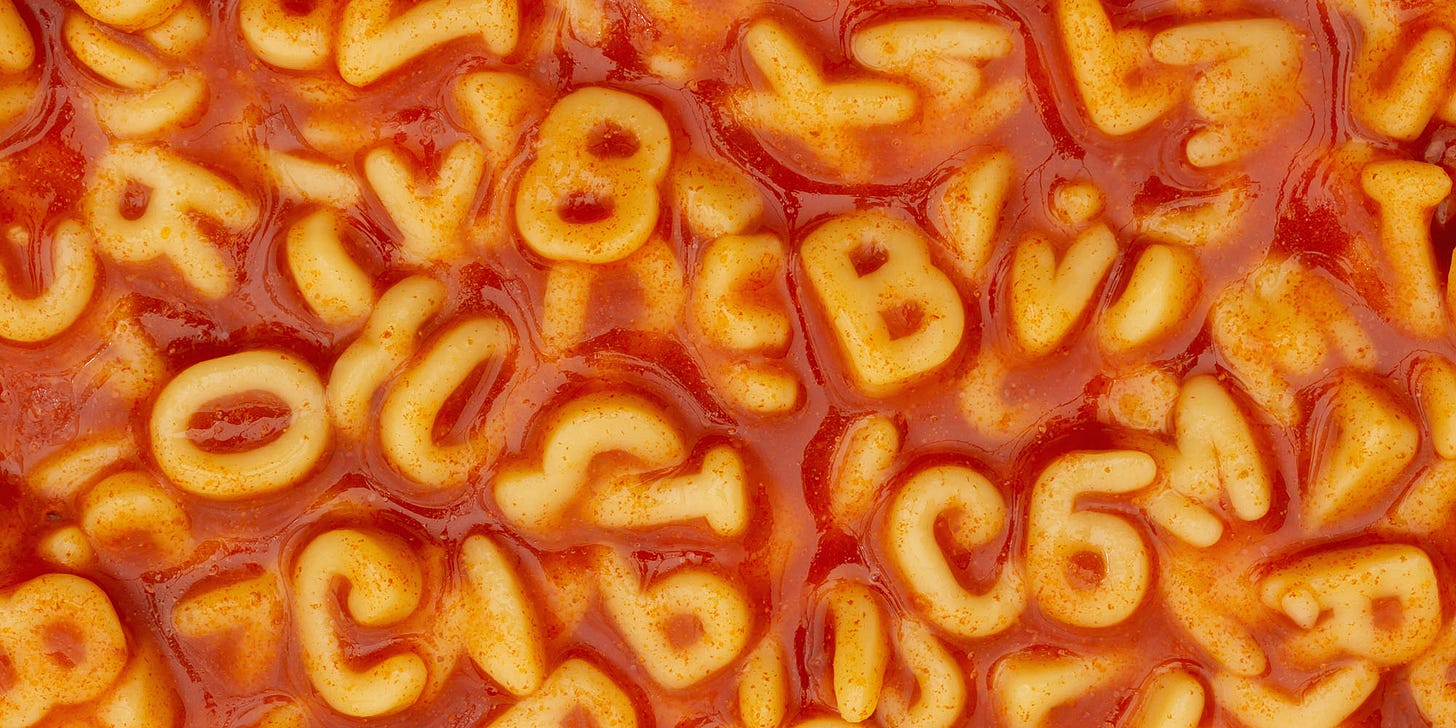NameStorming
Decoding the alphabet soup of tomorrow
As technology advances at an ever exponential rate and new products, ideas and innovations are introduced every hour, something inevitable will happen. We will start to see and hear more names. More terms, more handles, more monikers. More brands jostling for a spot in our daily dialogue, more products vying to permeate culture and become part of our everyday lexicon. What lessons can we learn from the past to ensure our future verbal landscape is dotted with more treasures than trash?
In 1902 Emil Jellinek, the owner of Daimler trademarked a new car brand in honor of his daughter, Mercédès. In 1914 Big Bertha was the German Empire's most prized artillery and most USS warships are referred to as she in naval terms. Historically industry has named products after women, today Silicon Valley seems to be following suit. From the Macintosh Lisa in 1983 named after Steve Jobs' daughter to the avalanche of AI assistants such as Alexa, Siri, Elsa and the rest of our digital BFF's the trend doesn't seem to be going anywhere soon.
It's not all female though. Albert, Dave, Aiden, Oscar and Frank. No, sadly not the latest boyband from Huddersfield, but finance services backed by the big guns of Wall Street.
So, what's with Silicon Valley's penchant for naming subservient assistants after women and anything with financial smarts after men? With data suggesting that 90%+ of software engineers are male it is no surprise that 90%+ of new tech products are inappropriately gendered. Linguist Laurel Sutton hits the nail on the head: “The patriarchy will tell you that you want a guy to help you with your money and you want a woman to do stuff for you,” When naming your new borns resist cliched gender labels and think outside of the '1001 Baby Names' box.
Personalizing scary sounding financial services is nothing new. In the US, folksy driven financial institutions such as Freddie Mac and Fannie Mae have been around since Roosevelt's New Deal, however those names were derived from acronyms (Federal Mortgage Corp and Federal National Mortgage Association) rather than gender stereotypes.
Just like Freddie and Fannie you too could always reach for an acronym. A familiar approach to giving complex products or organizations a sticky, abbreviated label that becomes more comprehensible once the letters are explained. Classic examples include NASA (National Aeronautics and Space Administration) and ESPN (Entertainment & Sports Programming Network.) More recent examples however buck this trend and become less clear once explained. NFT (the world's worst acronym) and GPT are both products that get more complicated and less clear once they are explained. Non Fungible Tokens and Generative Pre-trained Transformers are the opposite of what a good acronym should be. NFT seems to have fallen at the first fence, will GPT go all the way?
Another approach to naming is Neogolism, blending, mostly ancient, languages to forge new meanings. A venerable vocabulary provides a sense of history and trust, the fresh neogolistic combination providing uniqueness (and less copyright issues.). Take Mondelez, a moniker that combines two latin phrases to create something new. 'Mundus' means world and 'delez' evokes deliciousness. Together; 'a world of deliciousness.' The perfect umbrella for all that the company offers. This approach lends gravitas and novelty, a linguistic double scoop that gives the impression the brand has been around way longer than its 2012 origins.
But tread carefully in our polyglot world. English may dominate, but lost in translation moments abound. The Audi e-tron’s unfortunate French translation (Audi Excrement) and the Mitsubishi Pajero’s Spanish gaffe (Mitsubishi Masturbator) are cautionary tales.
Other approaches include statement names such as The Boring Company or I Can't Believe It's Not Butter or irreverent non descriptors such as Zoom or Acrobat. Whatever approach you employ to christen your freshly baked spawn, when you and your team are Namestorming, on a quest to uncover the Holy Grail that is both a verb and a household name, once you've checked domain name availability, social media handles, and ensured that the name resonates well across the whole digital expanse it is good to remember Paola Norambuena's (paraphrased) sage advice: a great name can’t fix a bad product and a sexist, poorly translated, confusing acronym can sink a good one.

